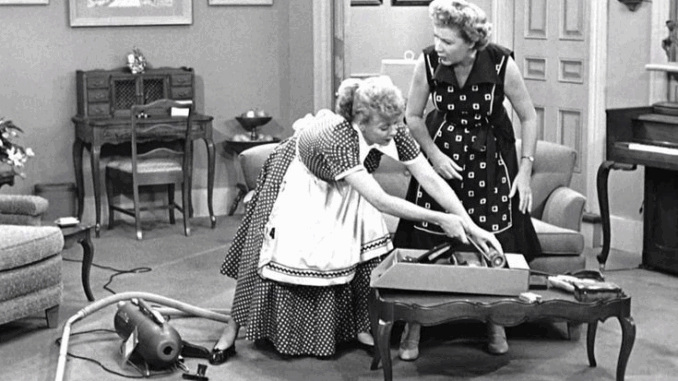
Los Angeles, 1957 – Season 7 of I Love Lucy serves as the series’ swan song, concluding the journey of one of television’s most iconic sitcoms. This final season, shorter than its predecessors, marks the end of an era and offers a nostalgic look back at the Ricardo family’s adventures, with a stronger focus on behind-the-scenes dynamics and character-driven moments.
The decision by Lucille Ball and Desi Arnaz to end I Love Lucy was driven by their desire to explore new creative avenues and spend more time with their growing family. As such, Season 7 features fewer episodes but each is crafted with careful attention to character development and narrative closure.
This season highlights the maturation of Lucy and Ricky’s relationship, portraying them as a seasoned couple facing everyday challenges with humor and grace. The writing leans into the warmth of family life, showcasing moments of tenderness alongside the classic physical comedy that fans have come to expect.
Despite the more subdued tone, the season does not lose its comedic edge. Memorable episodes include Lucy’s attempts to start a business and the classic misunderstandings with neighbors Ethel and Fred Mertz, which continue to deliver laughs.
Season 7 also holds historical significance as one of the last major productions filmed in front of a live studio audience, capturing authentic audience reactions that added to the show’s charm.
Ultimately, I Love Lucy’s final season is a fitting tribute to a show that revolutionized television comedy. Its legacy lives on through countless shows it inspired, and its influence can still be felt in sitcoms today. Lucille Ball’s pioneering spirit, combined with Desi Arnaz’s innovative production techniques, created a blueprint that shaped the future of the medium.
As the curtains closed on I Love Lucy, audiences around the world celebrated a show that not only brought laughter into their homes but also broke new ground in television storytelling, performance, and production.
